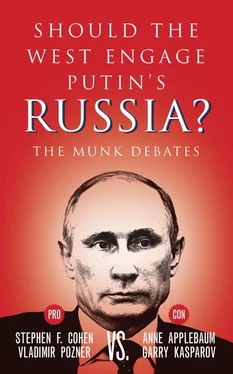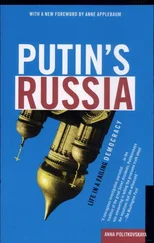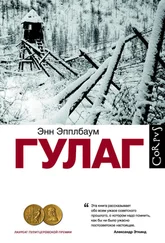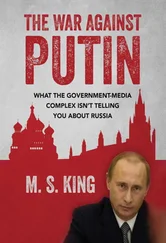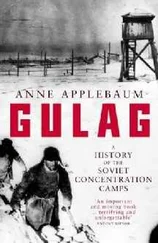The West would have to react to that action. So I’m guessing NATO would enter western Ukraine. So you now have NATO — the United States, in effect — paying and leading an occupation in Ukraine. It’s the Cuban Missile Crisis.
RUDYARD GRIFFITHS: The analogies of World War II are going to be brought up in this debate. People are going to say that this isn’t about isolation versus engagement. This is about appeasement versus containment. Anne Applebaum and Gary Kasparov are on the containment side; you’re arguing for appeasement.
STEPHEN F. COHEN: No, I’m arguing for détente. We have been through this before. We went through it with the Soviet Union. I was on a committee in the United States formed by CEOs of American corporations, big ones — IBM companies and PepsiCo. They wanted to trade with the Soviet Union and understood that trade required some kind of political buffer. We can’t constantly be getting so furious that we would resort to sanctions as we did back then.
And détente ultimately triumphed after a lot of defeats because Ronald Reagan, of all people, embraced it. And he and Gorbachev both thought, wrongly as it turns out, that they had ended the Cold War forever.
People who talk about appeasement and reference the analogy of Munich and Hitler make me think their brains froze in 1938. Can’t they think of some other historical analogy? This is a serious history. It’s not serious political analysis and it’s reckless foreign policy making. Putin is not expansive. He’s not Hitler, and it’s not clear what our political leaders think. But we know one thing: the chancellor of Germany, Angela Merkel, and the president of France, François Hollande, went into an absolute panic in February when they realized that the Americans were serious about arming Kiev.
RUDYARD GRIFFITHS: John McCain.
STEPHEN F. COHEN: They thought it was just typical American rhetoric, that we talk a lot and we don’t do anything. And normally that is what we do. But they became convinced that it was going to happen and then flew quickly to Minsk and Washington, and all these other places, to sign the Minsk Accord.
Now Poroshenko, the president of Ukraine, signed it a few days ago, and then violated it by passing some laws that are completely contrary to what he signed. Merkel and Hollande are absolutely furious. But it is now political, if you see what I mean. We are now at the tipping point. All the parties involved have a chance to negotiate. The people who seem to want a showdown with Russia are the enemies of this agreement. They are very powerful and they are represented at your debate here in Toronto tonight. I don’t know how two grown-ups who have as much knowledge as our opponents have, and have lived the lives they have could work themselves into this really irrational anger about Putin.
RUDYARD GRIFFITHS: Finally, talk to us about why you think there is a faction out there that wants this showdown. As you mentioned, nuclear weapons are involved here, so the risk seems very high. Where does this come from? What is the agenda that is pushing your opponents forward here?
STEPHEN F. COHEN: I don’t want to talk about Ms. Applebaum and Mr. Kasparov because I don’t know how they’ve talked themselves into this position. Everybody has an autobiography: Kasparov was once a Soviet hero. He was a legendary figure in the Soviet Union. Although he is not Russian by origin, he’s culturally Russian. And Applebaum is a very eminent figure with a long history of writing about Russia.
You asked me how I know there are people who want a showdown with Putin even if it involves the military. Because they say so. They talk about weapons being defensive, not offensive. I have no idea what a defensive weapon is, unless it is a tank cannon that can only shoot in one direction or a rifle without bullets — it’s nonsense, and everybody knows it. They want to escalate what is already a military crisis. And for what purpose? They think this will result in a defeat of Putin’s leadership and that he will just go away.
Kasparov said the other day, for example, that Putin is a cancer and, as with any cancer, you have to cut it out. Actually, medically that’s not true; many cancers are not cut out and treated. But to carry his metaphor forward, he means that Putin’s regime has to be removed by one means or another. If he were sitting here, I would ask Garry if he thought we should use NATO military action to remove Putin, and I’m sure he would say that if it’s possible then why not.
Applebaum has a different view, I think. My understanding is that she really believes Putin is somehow on the march and that if he prevails in Ukraine, he will hit elsewhere. But the showdown is in their minds. It certainly is in Senator McCain’s mind and the minds of the entire United States Congress. In both houses — in four votes over four or five months — only forty-eight members of the House voted against condemning Putin’s actions. No members of the Senate. There is no substantial political opposition on this topic in the United States. So it’s not just McCain who seems to want a showdown with Putin — it’s all of Washington.
RUDYARD GRIFFITHS: Well, that is a sombre note to end on here, and on which to start what should be a fabulous debate this evening.
STEPHEN F. COHEN: To defend my own country, I hear that this point of view is quite strong in Canada as well. But since I don’t live here I can’t say that first-hand.
RUDYARD GRIFFITHS: You will get a definite flavour for it tonight. Stephen F. Cohen, thank you for coming to Toronto to be part of this debate.
STEPHEN F. COHEN: Thanks for having me.
VLADIMIR POZNER
IN CONVERSATION WITH
RUDYARD GRIFFITHS
RUDYARD GRIFFITHS: I am joined by Vladimir Pozner, who will be arguing for the resolution tonight. He is an Emmy Award–winning journalist and host of the top-rated Russian current affairs show on Channel One, as well as a bestselling author. Vladimir, great to have you here in Toronto.
VLADIMIR POZNER: It is my pleasure.
RUDYARD GRIFFITHS: You’ve had a lifetime of engagement with this relationship between the Western world and Russia, sometimes good and sometimes bad. Where are we at right now? Are we at the beginnings of a new Cold War?
VLADIMIR POZNER: The answer to that is yes and no because the Cold War was really based on ideology. Two systems were fighting each other, each one believing that it was right. It wasn’t about geopolitics. It was about convincing the other that we have the right system; we have the right ideas; it was also about capitalism versus socialism — or versus communism — depending on how you look at it. That was the Cold War, and that is not happening now.
It is a different situation now, but it is just as dangerous — perhaps even more dangerous. At this point it’s a propaganda war — a media war — about geopolitical interests. It’s about whether or not a country feels threatened. Rightly or wrongly, Russia feels threatened by NATO. And it’s about whether or not the United States is concerned about nuclear weapons. Because back in the Cold War days, the Americans were very fearful of nuclear weapons, and I think MAD played a key role in preventing war. Kids were taught to hide under desks. There were movies like The Day After. People were very much aware of it. I don’t think it’s the same today. Somehow, the whole issue of nuclear war has kind of dissolved. And I think that’s dangerous.
RUDYARD GRIFFITHS: Tonight you are putting forward the argument that the West should be engaging Russia not isolating it. Are you concerned about a nuclear threat here, or that a set of errors could happen if the West pursued a policy of isolation, or even something more hardline, against Russia?
Читать дальше
